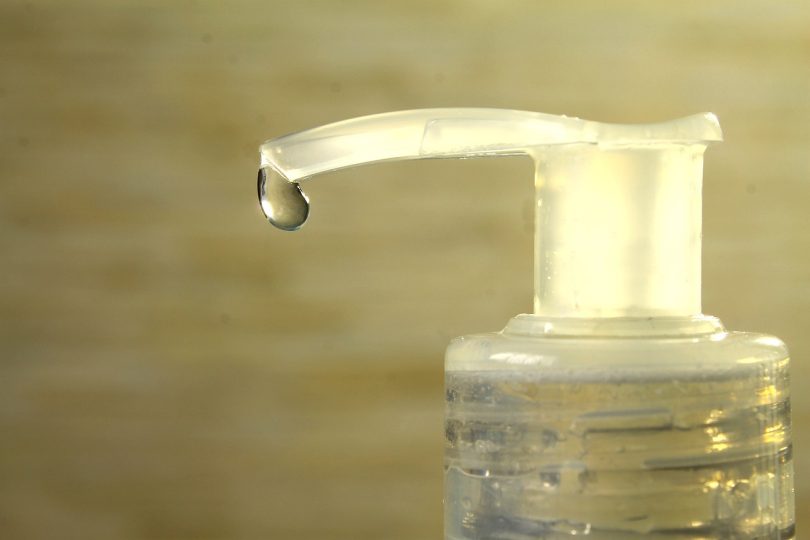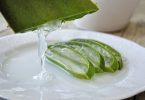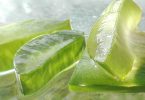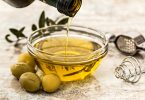Are you tired of using chemical-laden cleaners that may harm your immune system? Look no further. Discover the power of antibacterial herbs in homemade cleaners.
Not only can these herbs effectively kill germs and bacteria, but they also support your immune health. By incorporating these natural ingredients into your cleaning routine, you can create a safer and healthier environment for you and your loved ones.
So, why settle for conventional cleaners when you can explore the wonders of antibacterial herbs?
Benefits of Antibacterial Herbs
Using antibacterial herbs in homemade cleaners can provide numerous benefits for both your health and the environment. One of the primary advantages is that these herbs offer a natural alternative to harsh chemical cleaners. Traditional cleaning products often contain chemicals that can be harmful to your health, causing respiratory issues and skin irritations. By incorporating antibacterial herbs into your homemade cleaners, you can avoid these potential health risks.
Additionally, antibacterial herbs have been shown to effectively eliminate germs and bacteria. Herbs such as thyme, oregano, and lavender possess powerful antimicrobial properties that can help kill harmful bacteria on surfaces. This can be particularly beneficial in areas like the kitchen and bathroom, where bacteria tend to thrive.
Another benefit of using antibacterial herbs is that they’re environmentally friendly. Traditional cleaners often contain chemicals that can be harmful to aquatic life and contribute to water pollution. By using homemade cleaners with antibacterial herbs, you can minimize your impact on the environment and reduce your carbon footprint.
Lastly, antibacterial herbs can add a pleasant fragrance to your homemade cleaners. Unlike synthetic fragrances found in commercial products, the natural scents of herbs can create a refreshing and calming atmosphere in your home.
Essential Antibacterial Herbs
To effectively incorporate antibacterial herbs into your homemade cleaners, it’s important to be familiar with the essential herbs that possess powerful antimicrobial properties. These herbs can help you create effective and natural cleaning solutions that not only kill germs but also support your immune health.
One essential antibacterial herb is thyme. Thyme contains thymol, a compound known for its strong antimicrobial properties. It can help kill bacteria, viruses, and fungi, making it a fantastic addition to your homemade cleaners.
Another essential herb is rosemary. Rosemary contains rosmarinic acid, which has been found to possess antimicrobial and antioxidant properties. It can help inhibit the growth of bacteria and protect against common pathogens.
Lavender is also a great antibacterial herb to include in your homemade cleaners. Lavender essential oil has been shown to possess antibacterial and antifungal properties. It not only helps kill germs but also leaves a pleasant and calming scent in your home.
Lastly, oregano is a powerful antibacterial herb that contains carvacrol, a natural compound with strong antimicrobial properties. Oregano essential oil can help kill bacteria, viruses, and fungi, making it an excellent addition to your homemade cleaning solutions.
DIY Antibacterial Cleaner Recipes
Now let’s explore how you can put these essential antibacterial herbs to use by creating your own DIY antibacterial cleaner recipes. Making your own homemade cleaners not only allows you to control the ingredients, but also helps promote a healthier and safer living environment.
One simple recipe involves combining equal parts of white vinegar and water in a spray bottle. Add a few drops of essential oil, such as lavender or tea tree, for added antibacterial properties and a pleasant scent. Shake well before each use and spray onto surfaces that need cleaning. Wipe with a clean cloth or paper towel.
Another effective DIY cleaner can be made using lemon and baking soda. Cut a lemon in half and dip one half into baking soda. Use the lemon to scrub surfaces, such as countertops or cutting boards, to remove stains and kill bacteria. Rinse with water afterwards.
For a stronger antibacterial cleaner, you can create a mixture using rubbing alcohol, water, and a few drops of essential oil. Mix equal parts of rubbing alcohol and water in a spray bottle, and add a few drops of your preferred essential oil. Shake well and use on surfaces as needed.
Remember to always label your homemade cleaners properly and keep them out of reach of children and pets.
With these simple and effective DIY antibacterial cleaner recipes, you can maintain a clean and germ-free environment while supporting your immune health.
Incorporating Herbs Into All-Purpose Cleaners
You can easily incorporate herbs into your all-purpose cleaners for added antibacterial power and a fresh, natural scent. Herbs have antimicrobial properties that can help kill germs and bacteria, making them a great addition to your cleaning routine. There are several ways to incorporate herbs into your homemade cleaners.
One simple method is to infuse herbs into vinegar or vodka. Fill a jar with your chosen herbs, such as lavender, thyme, or rosemary, and cover them with vinegar or vodka. Let the mixture sit for a few weeks, shaking it occasionally to release the herb’s natural oils. Strain the liquid and use it as a base for your all-purpose cleaner, diluting it with water as needed.
Another option is to make an herbal tea and use it as a cleaning solution. Boil water and add a handful of herbs, such as eucalyptus, peppermint, or lemon balm. Let the mixture steep for 20 minutes, then strain it into a spray bottle. This herbal tea can be used to clean countertops, floors, and other surfaces.
You can also create herb-infused oils and add them to your homemade cleaners. Simply combine herbs, such as thyme, basil, or oregano, with a carrier oil like olive or jojoba oil. Let the mixture sit for a few weeks, then strain it into a bottle. This herb-infused oil can be added to your all-purpose cleaner for extra antibacterial power.
Natural Disinfectant Sprays With Herbs
Consider incorporating herbs into your homemade cleaners to create natural disinfectant sprays. These sprays can be a great addition to your cleaning routine, as they not only help to disinfect surfaces but also provide a pleasant, fresh scent. There are several herbs known for their antibacterial properties that can be used in these sprays.
One popular herb for natural disinfection is lavender. Lavender has antimicrobial properties that can help kill bacteria and germs on surfaces. It also has a calming scent that can help create a relaxing atmosphere in your home. To make a lavender disinfectant spray, simply steep dried lavender flowers in boiling water, strain the liquid, and mix it with a small amount of white vinegar.
Another herb that’s commonly used for disinfection is thyme. Thyme contains thymol, a natural compound that has strong antimicrobial properties. To make a thyme disinfectant spray, steep fresh thyme leaves in boiling water, strain the liquid, and mix it with rubbing alcohol or vodka.
Rosemary is another herb that can be used in natural disinfectant sprays. It has antimicrobial properties and a refreshing scent. To make a rosemary disinfectant spray, steep fresh rosemary leaves in boiling water, strain the liquid, and mix it with a small amount of hydrogen peroxide.
Antibacterial Herbs for Surface Cleaning
To effectively clean surfaces using natural ingredients, incorporate antibacterial herbs into your cleaning routine. Antibacterial herbs have been used for centuries to kill germs and bacteria, making them a great addition to your homemade cleaning products.
One popular antibacterial herb is thyme. Thyme contains a compound called thymol, which has been shown to have strong antimicrobial properties. You can make a simple thyme-infused cleaner by steeping fresh thyme leaves in vinegar for a few weeks and then straining it into a spray bottle.
Another herb to consider is rosemary. Rosemary contains rosmarinic acid, which has been found to have antibacterial and antiviral properties. To make a rosemary cleaner, combine fresh rosemary leaves with water and let it simmer on the stove for about 30 minutes. Once cooled, strain the liquid into a spray bottle and use it to clean your surfaces.
Additionally, you can use lavender, oregano, and peppermint as antibacterial herbs in your homemade cleaners. By incorporating these herbs into your cleaning routine, you can effectively kill germs and bacteria while keeping your home chemical-free.
Herbal Ingredients for Homemade Hand Sanitizers
To expand your knowledge on natural cleaning solutions, let’s now explore the use of herbal ingredients for homemade hand sanitizers. Making your own hand sanitizer using herbal ingredients can be an effective way to keep your hands clean and germ-free.
One popular herbal ingredient is aloe vera gel. Aloe vera has natural antibacterial properties and can soothe and moisturize the skin. Simply mix aloe vera gel with essential oils like tea tree or lavender for added antibacterial benefits and a pleasant scent.
Another great herbal ingredient is witch hazel. Witch hazel has astringent properties that can help cleanse and disinfect the skin. You can combine witch hazel with rubbing alcohol and a few drops of your favorite herbal essential oil.
Some other herbal ingredients to consider include rosemary, thyme, and oregano. These herbs have antimicrobial properties that can help kill germs. You can infuse them into a carrier oil like jojoba or almond oil and use that as a base for your hand sanitizer.
Herbs for Boosting Immune Health
Boost your immune health with the power of herbs.
When it comes to supporting your immune system, nature has provided us with a variety of herbs that can help strengthen and protect our bodies. These herbs are known for their immune-boosting properties and can be easily incorporated into your daily routine.
One powerful herb for immune health is echinacea. This herb has been used for centuries to enhance the immune system’s response to infections. It’s believed to stimulate the production of white blood cells, which play a crucial role in fighting off harmful pathogens.
Another herb that can help boost your immune health is elderberry. Elderberry is rich in antioxidants and has been shown to have antiviral properties. It can help reduce the severity and duration of cold and flu symptoms, keeping your immune system strong and resilient.
Garlic is another herb that can do wonders for your immune health. Known for its antimicrobial properties, garlic can help fight off infections and support overall immune function. It’s also rich in antioxidants, which can help protect your cells from damage caused by free radicals.
Incorporating these immune-boosting herbs into your daily routine can help strengthen your immune system and keep you healthy. Whether you choose to use them in teas, tinctures, or as part of your cooking, harnessing the power of herbs is a natural and effective way to support your immune health.







